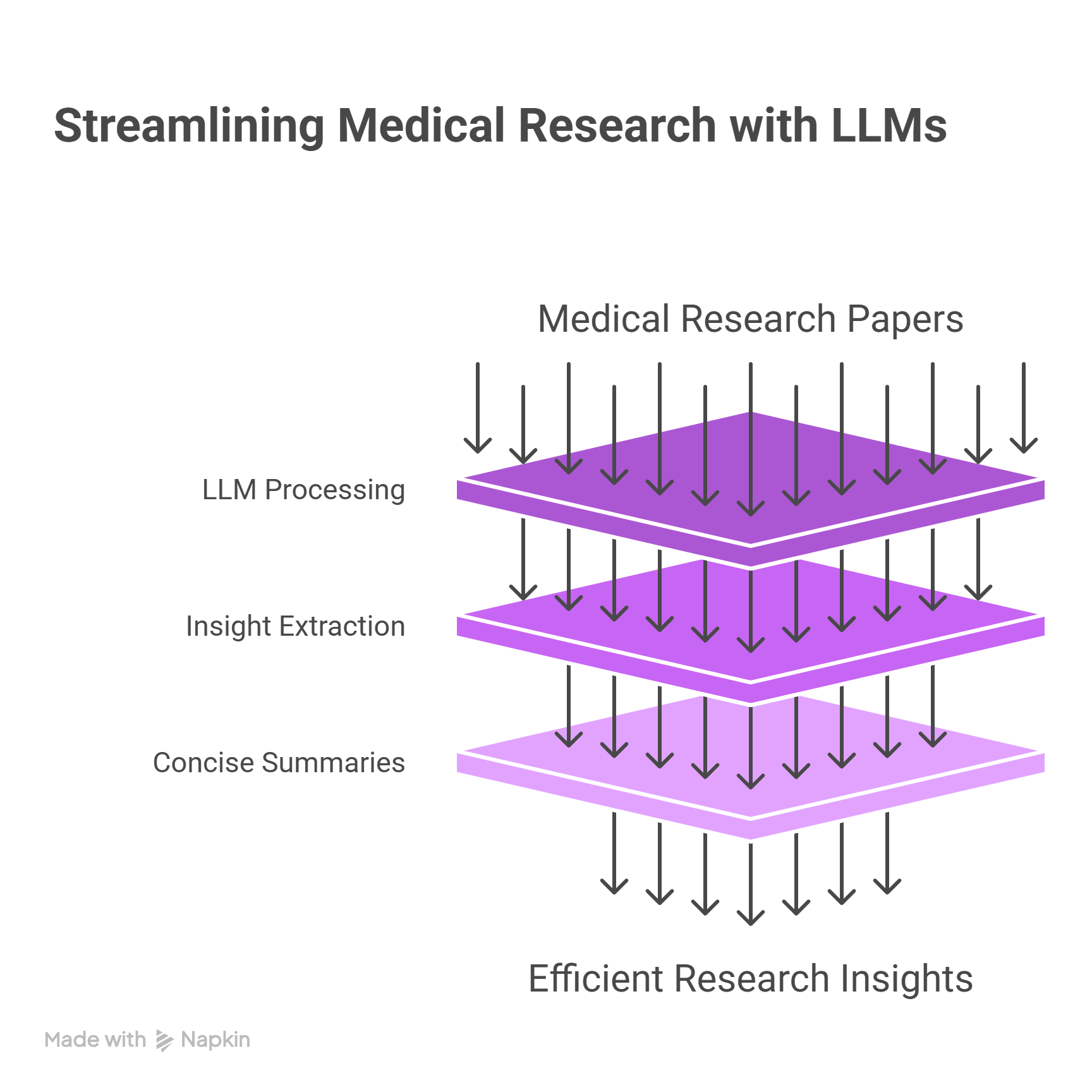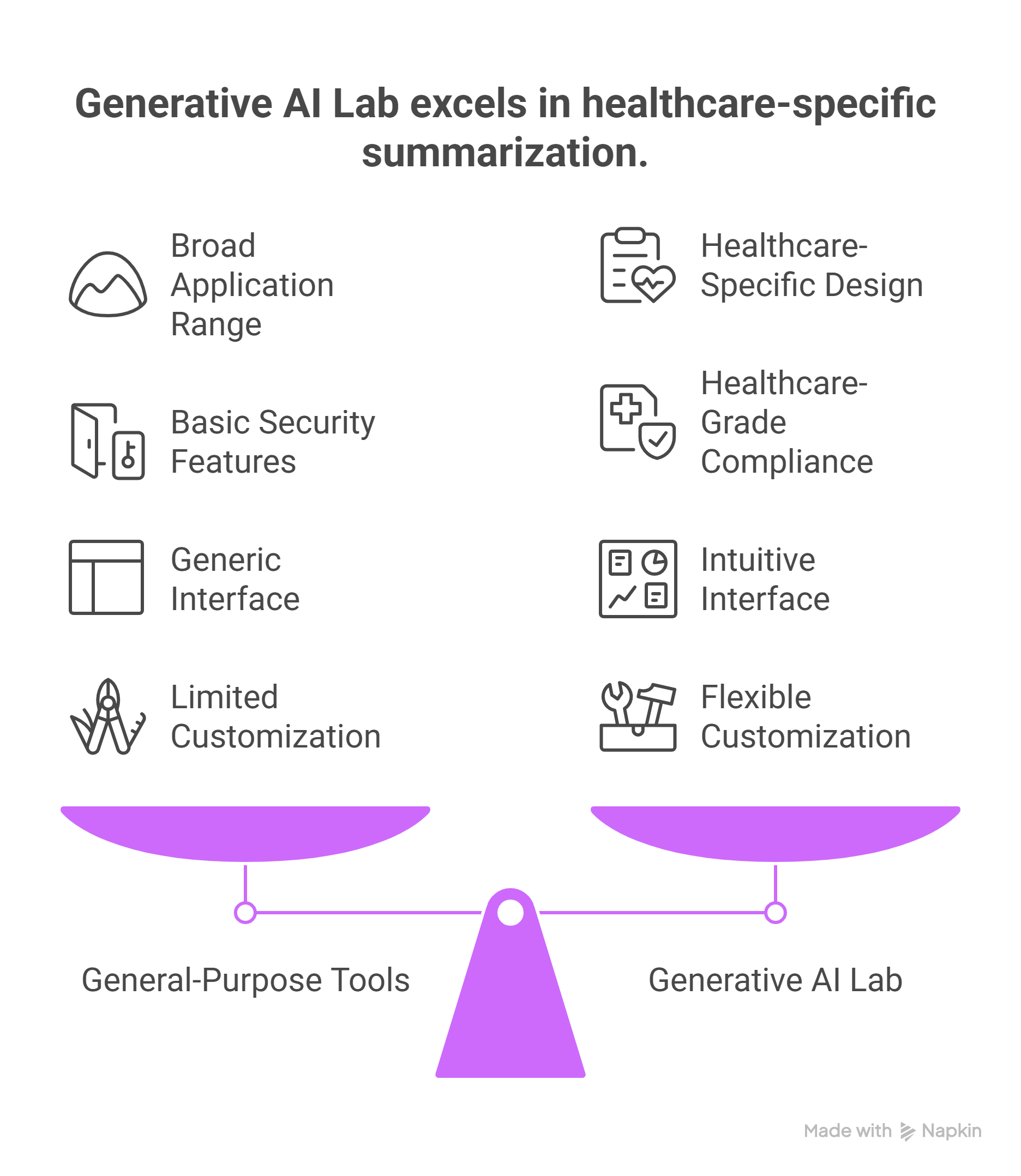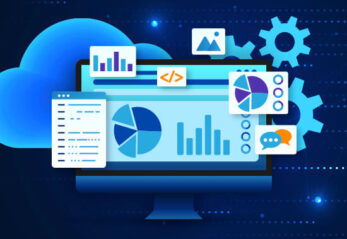What is the role of LLMs in summarizing medical research?
Large Language Models (LLMs) are reshaping how clinicians and researchers engage with the ever-growing body of medical literature. By summarizing research papers into clear, digestible insights, these models reduce the time and effort required to stay current.
John Snow Labs’ Medical Chatbot is a leading example of how this technology is being applied. It uses domain specific LLMs to automatically extract and summarize findings from medical papers, without cMedical Chatbot ompromising on accuracy or clinical depth. Instead of spending hours reading through studies, researchers can get concise, relevant summaries in seconds.

How does John Snow Labs Medical Chatbot enable medical research summarization?
Generative AI Lab simplifies summarization through a structured, user-friendly process. After ingesting research documents, it identifies key sections, such as methods, results, and conclusions, and then generates targeted summaries using domain-specific language models.
Users can summarize entire papers or focus on specific sections, depending on their goal. This process not only streamlines evidence synthesis but also enhances collaboration by producing consistent, reviewable outputs that can be validated through built-in human-in-the-loop tools.
Why is this important for medical and clinical teams?
The speed and volume of new medical knowledge make it nearly impossible to keep up manually. Summarization with LLMs addresses this by allowing teams to:
- Quickly understand new research without reading every word
- Support systematic reviews with consistent, extractable insights
- Reduce information overload and focus on what matters most
This helps clinicians make informed decisions, researchers accelerate discovery, and healthcare systems maintain a high standard of care.
How accurate are LLM-generated summaries in healthcare?
Accuracy is key when applying LLMs in a medical context. That’s why John Snow Labs trains its models using peer-reviewed data and benchmarks them against trusted clinical NLP datasets. John Snow Labs Medical Chatbot goes a step further by linking each summary back to its source, allowing for auditability and review.
What makes Medical Chatbot different from other LLM tools?
Unlike general-purpose summarization tools, John Snow Labs Medical Chatbot is designed specifically for healthcare. It combines specialized models with healthcare-grade compliance and secure infrastructure. Its intuitive interface allows users to generate summaries with minimal configuration.
This focus on domain-specific utility, explainability, and scalability makes it a reliable solution for organizations that prioritize both speed and clinical integrity.
FAQs
Can I customize summaries for specific research questions?
Yes, the platform supports prompt tuning to focus on specific elements like patient outcomes, interventions, or study design.
Is it suitable for generating plain-language summaries?
While designed for professionals, it can produce simplified outputs with adjusted prompts, making it helpful for patient-facing communications.
Can it support literature reviews and meta-analyses?
Yes, the tool speeds up early-stage review processes by summarizing and structuring findings across multiple studies and it is periodically updated with new research published in trusted sources as Pubmed.
What types of research papers work best?
Papers with structured formats, like clinical trials or observational studies are ideal for LLM-driven summarization.
Supplementary Q&A
How can LLMs support clinical decision-making?
They condense vast amounts of evidence into usable insights, enabling faster, more informed care decisions at the point of service.
What’s the advantage of abstractive summarization?
Unlike extractive methods that copy sentences verbatim, abstractive models create summaries that better capture nuance and intent critical for medical accuracy.






























